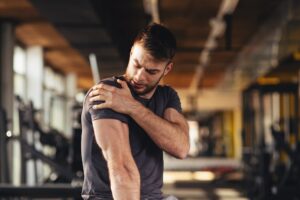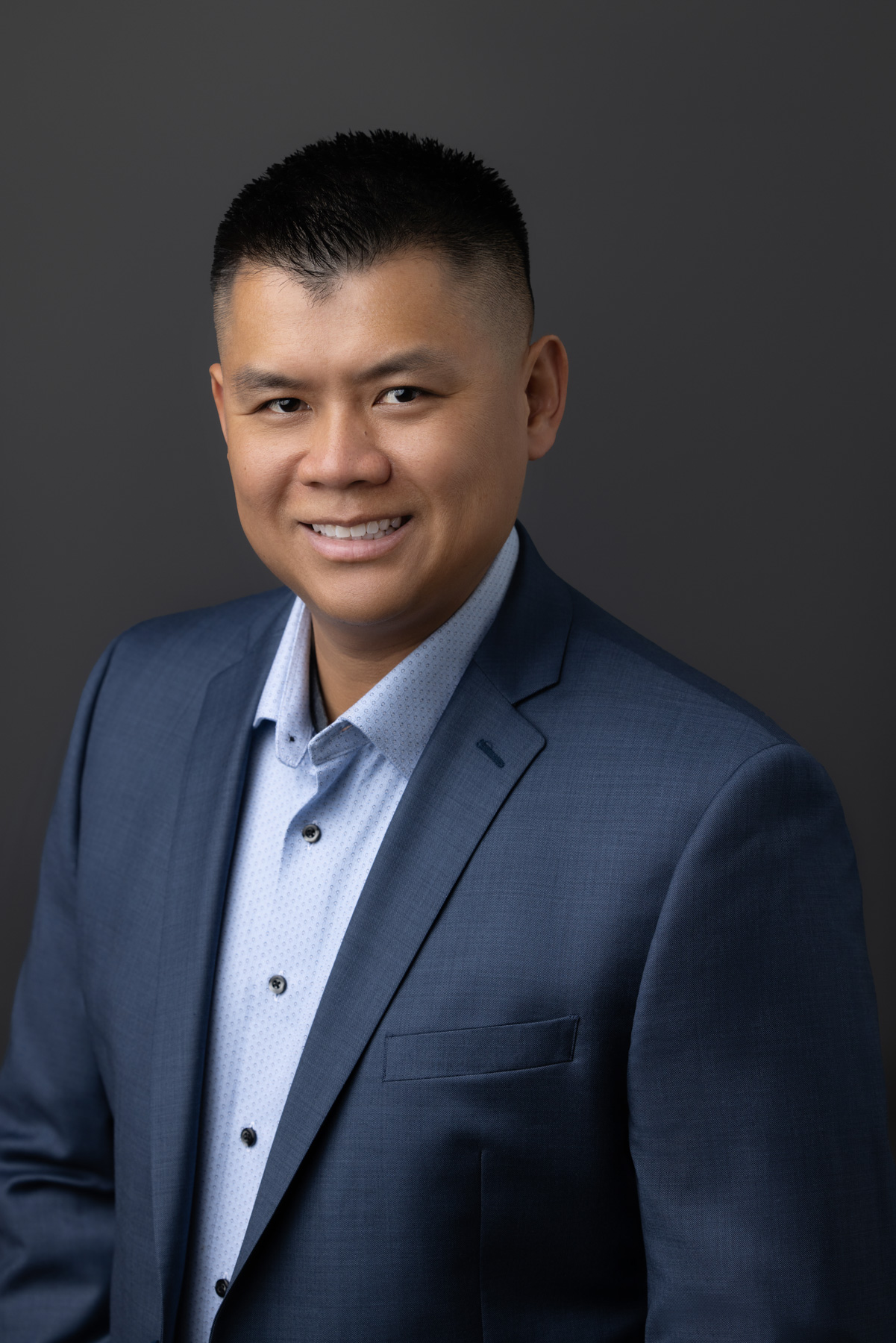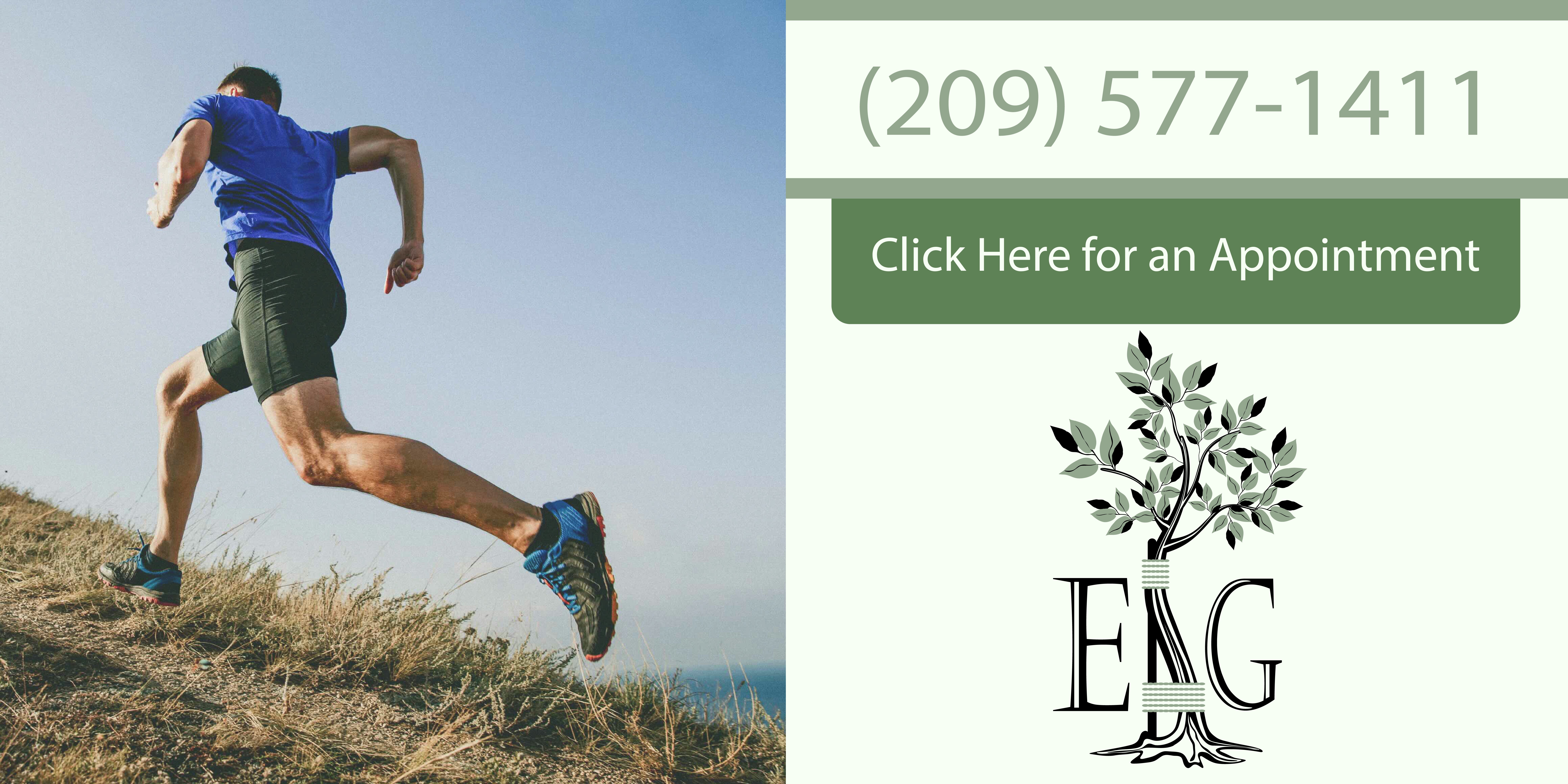Golf is an increasingly popular sport in the United States, with recent statistics showing the number of people participating in golf reached 25.6 million. With more and more people playing golf, one of the most common questions I hear from my patients is “can I play golf after shoulder replacement surgery?” The answer may very well be yes. Deciding whether you will be able to swing a golf club following surgery may depend on certain factors.
What is Shoulder Replacement Surgery?
Shoulder replacement surgery is a procedure often used to treat severe shoulder pain and stiffness caused by various forms of arthritis or degenerative joint disease. The goal of this surgery is to remove the arthritic shoulder joint and replace it with more functional artificial components known as a prosthesis. This type of surgery is generally very successful in relieving pain and increasing range of motion.
During shoulder replacement surgery, the damaged “ball and socket” is removed and repaired. A metal prosthesis replaces the “ball” (the end of the humerus), and the inside of the “socket” (glenoid cavity) is resurfaced with high-density polyethylene. At this point, any bone spurs are removed, as well as releasing soft tissue adhesions and contractures.
When Can I Resume Playing Golf After Surgery?
Resuming normal physical activity, such as golf, after a shoulder replacement surgery varies from patient to patient. Most patients can expect to return to normal activities within three to six months after surgery. Initially after surgery you will be advised to rest before moving on to physical therapy. Typically, this will occur about two to four weeks after your surgery.
Completing a physical therapy program is critical for regaining the most optimal strength and motion in your shoulder. Physical therapy for a total shoulder replacement involves exercises and stretches that will ultimately help improve your shoulder range of motion, strength, and overall function while helping to reduce overall pain.
Depending on the person’s overall health and their rate of recovery will decide how long before they can return to physical activities, such as golf. I generally recommend that my patients gradually resume physical activities 6 weeks post-op, and no sooner than I or the physical advise.
Precautions to Take After Shoulder Replacement Surgery
It is very important that after undergoing a total shoulder replacement surgery, that you take all the necessary precautions to maintain and increase your progress. For patients wanting to get back to physical activities such as being able to play golf, I suggest these precautions be taken seriously and not rushed.
- Maintaining Range of Motion: After a shoulder replacement surgery, it’s crucial to maintain the range of motion in your shoulder. Regular but gentle movement exercises help prevent stiffness and increase mobility. Therefore, we encourage all patients to complete a full physical therapy regime.
- Avoiding Heavy Lifting: Following surgery, you should avoid lifting heavy objects or making strenuous movements for at least 12 weeks post-surgery. This will prevent unnecessary strain on your new shoulder joint and promote quicker healing.
- Paying Attention to Pain Signals: As your doctor, I encourage you to listen to your body as it is going through the recovery process. Your body knows when you’re overexerting yourself and will signal you when it is time to slow down. Listen to these signals and decrease or stop the activity if you experience any pain.
The Impact of Shoulder Replacement Surgery on Golf Performance
Short Term Impacts
Short term impacts of shoulder replacement surgery may include limitations to your golf performance. You will need to focus on healing and strengthening your shoulder from the start to increase your potential to a full return to golf.
Long Term Impacts
In the long run, shoulder replacement surgery could improve your performance. A new shoulder, free of pain and with restored mobility, can make a significant difference in your swing, allowing you to get back to playing golf again on a more regular basis.
The Role of Therapy in Resuming Golf
As discussed earlier, physical therapy is crucial to regaining strength and mobility. Physiotherapy is also a treatment similar to physical therapy, but is more focused on manual therapies, while physical treatment is more exercise-based. This type of therapy is used to restore, maintain, and make the most of a patient’s shoulder mobility and overall function. Physiotherapy is beneficial for helping a patient with rehabilitation, preventing injury, and increasing health benefits.
Physiotherapy can play an important role in strengthening your shoulder muscles after surgery by using specific exercises to help you regain strength and flexibility. Physiotherapy also can aid in improving flexibility, a crucial aspect for a smooth, effortless golf swing.
Getting Back to Golf After Shoulder Replacement Surgery
After having shoulder replacement surgery, patients typically have a high chance of returning to playing golf. There is a high percentage of patients who returned to golf after surgery, able to play without pain and have a more fluid swing. Golf performance may be similar after shoulder replacement surgery, though some may not find they have the same strength initially.
Steps to Resuming Golf
Resuming golf after shoulder replacement surgery should start with gentle swings and gradually increase as strength improves. Initially, patients should stick to small game, such as putting and chipping before moving on to full swings. Following physical therapy, it is important to wait until instructed to return to normal activity.
Understanding Your Limitations
Your performance might not be the same immediately after your recovery, so be sure to give yourself time to recover and build back strength and mobility. When initially regaining your swing, try to avoid excessive external rotation of the shoulder, which may occur at the top of the back swing.
Conclusion
The road to recovery after a shoulder replacement surgery can be challenging, but with patience, motivation, and proper care and rehab, you can return to playing golf. I have seen many of my patients return to playing golf after having a shoulder replacement surgery. The benefits of this surgery often outweigh and concerns and many find they can now play the game they love with less pain and more range of motion.
If you are considering shoulder replacement surgery and have questions or concerns regarding your recovering and how it might affect your level of activity, please contact me so we can discuss your options.
FAQs
How long after a shoulder replacement surgery can I start swinging a golf club?
Typically, you should wait around 3 to 6 months, but this can vary based on individual recovery rates and doctor’s advice.
Can I drive a golf cart after my surgery?
Driving can usually be resumed a few weeks after surgery, but your surgeon will give you your specific instructions based on your specific needs.
Will shoulder replacement surgery improve my golf swing?
Every patient is different, but it is likely that in the long run, you will experience pain-free and improved mobility which could enhance your golf swing.
What is the success rate of shoulder replacement surgery?
There is a very high success rate following shoulder replacement surgery. Many patients experiencing significant pain relief and improved function allowing them to play golf again.
Is physical therapy and/or physiotherapy necessary after the surgery?
Physical therapy and physiotherapy play a big role in recovery by helping strengthen and improve flexibility and movement in the shoulder.






